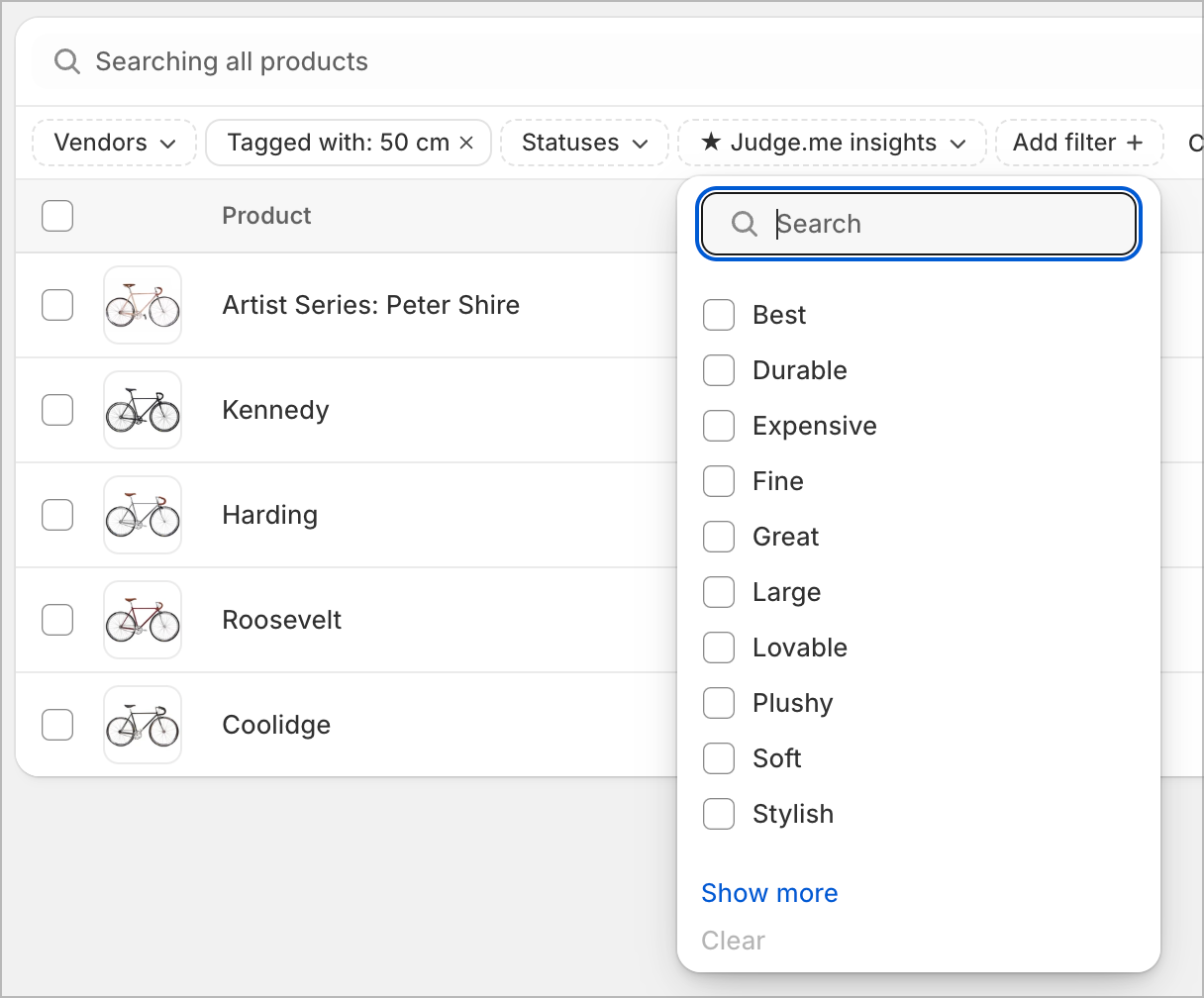Judge.me insights
Extract the most common adjectives customers use to describe your products, based on their Judge.me reviews. Use this to quickly understand customer sentiments and filter products by key traits (e.g. “soft”, “durable”, “expensive”) to make informed decisions on marketing, merchandising, and inventory.
Espresso will automatically extract the most common adjectives from your reviews and store them in a metafield. You can then use this metafield to filter your products by review traits.
The assigned adjectives for each product are visible in the product admin page in the "Product metafields" section for detailed review insights.

Only English reviews are supported at this time.
The 25 most recent reviews per product and the top 10 used adjectives across those reviews will be used to generate the insights. This is to ensure that the insights are not flooded with unimportant or infrequently used adjectives and that the insights are kept fresh (e.g. recent improvements in reviews of products will move negative sentiments out gradually).
Marketing use cases
Use common positive sentiments from reviews in ad copy, product descriptions, and social media to highlight what customers love about your products. If customers frequently call a jacket “warm” or “lightweight,” you can emphasize those traits in promotions.
Merchandising use cases
Create collections or filters based on sentiments to help shoppers find what they’re looking for. For example, if many products are described as “comfortable,” you can feature them in a “Most Comfortable Picks” collection.
Quality control and inventory management use cases
Identify patterns in negative sentiments to spot potential quality issues. If multiple products are frequently described as “fragile” or “scratchy,” you might reconsider restocking them, look for alternative suppliers, or update product descriptions to set better expectations.
Details
- Name
espresso.review_insights- Description
Metafield namespace and key
- Name
list.metaobject_reference- Description
Metafield type. Each referenced metaobject contain a single adjective along with the underlying sentiment (positive, negative, or neutral). The sentiment is a word classification only and is not influenced by the review score.
- Name
product- Description
Scope of Shopify object that owns the metafield
Example content
[{
"value": "warm",
"sentiment": "positive",
"label": "Warm"
},
{
"value": "expensive",
"sentiment": "negative",
"label": "Expensive"
}]
When you initially enable this metafield, the individual product metafields will be set in a background task. If you have a large catalog, this may take anywhere from a few minutes to a few hours. Once the metafields are set, they will be updated in real-time as reviews come in